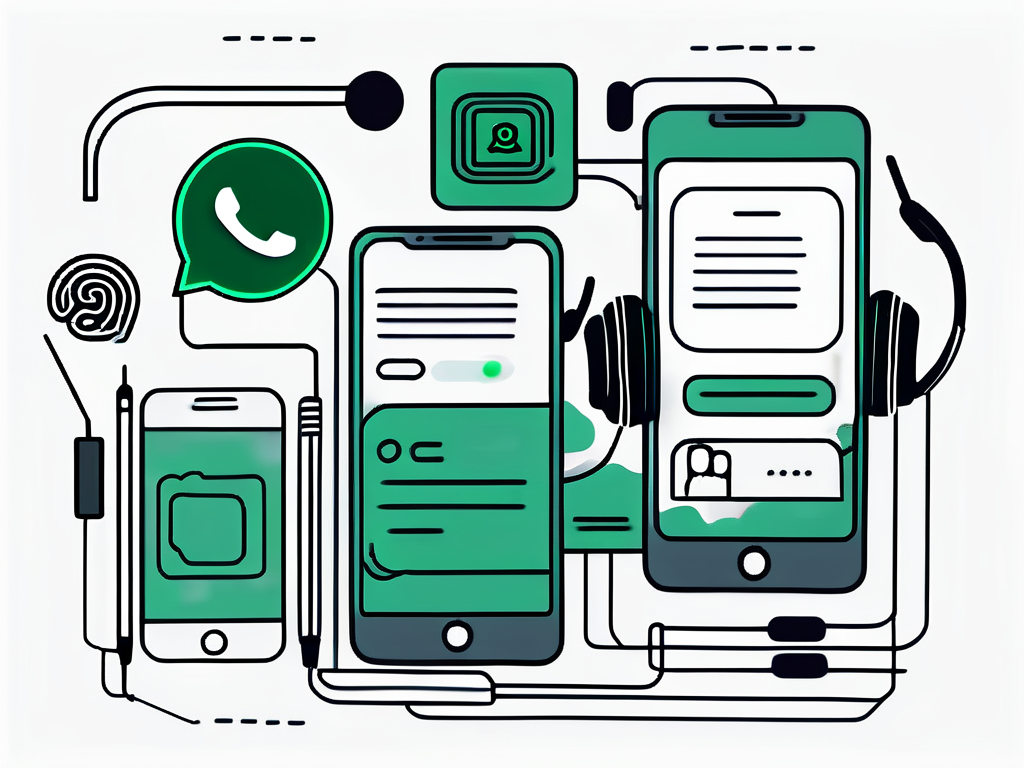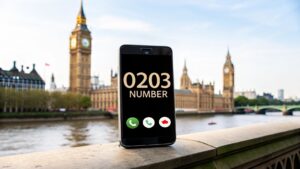WhatsApp Business messaging has become an essential tool for businesses to communicate with their customers effectively. However, like any other communication platform, there are certain etiquettes that businesses need to follow to ensure professionalism and customer satisfaction. In this article, we will explore the best practices for WhatsApp Business messaging etiquette that every business should implement.
Understanding WhatsApp Business Messaging
Before we delve into the best practices, let’s first understand the importance of WhatsApp in business communication. WhatsApp has emerged as one of the most popular messaging platforms, with over 2 billion users worldwide. Its wide reach and ease of use make it an ideal channel for businesses to engage with their customers.
When it comes to business messaging, WhatsApp offers several key features that enable businesses to provide timely and personalized customer service. Let’s explore these features in detail.
The Importance of WhatsApp in Business Communication
WhatsApp has revolutionized the way businesses communicate with their customers. It provides a direct and convenient channel for businesses to engage with their audience, build relationships, and offer support. By using WhatsApp, businesses can enhance customer satisfaction and loyalty, leading to increased sales and brand reputation.
Imagine a scenario where a customer has a query about a product or service. Instead of waiting on hold for hours or sending an email and waiting for a response, they can simply send a message on WhatsApp and get an immediate reply. This instant communication not only saves time for the customer but also allows businesses to address their concerns promptly, improving overall customer experience.
Moreover, WhatsApp’s popularity among users ensures a high engagement rate. People are more likely to open and respond to messages received on WhatsApp compared to other communication channels. This means that businesses have a higher chance of reaching their customers and conveying their messages effectively.
Key Features of WhatsApp Business Messaging
WhatsApp Business offers a range of features that businesses can leverage to streamline their communication. One of the key features is the ability to create a business profile, which includes important details such as contact information, business description, and a profile picture. This information helps customers identify and connect with businesses easily.
In addition to the profile, WhatsApp Business also provides features like automated messages, labels for organized communication, broadcast lists, and group chats. These tools enable businesses to automate certain processes, categorize messages, and reach a larger audience simultaneously.
Automated messages, for example, can be set up to greet customers when they first message the business or provide quick responses to frequently asked questions. This saves time for both businesses and customers, ensuring a smooth and efficient communication process.
Labels, on the other hand, allow businesses to categorize messages based on different criteria such as priority, status, or topic. This helps businesses stay organized and ensures that no customer query goes unnoticed or unresolved.
With broadcast lists and group chats, businesses can send messages to multiple customers at once, making it easier to share updates, promotions, or important announcements. This feature is particularly useful for businesses with a large customer base or those looking to reach a specific target audience.
In conclusion, WhatsApp Business messaging offers a plethora of features that empower businesses to provide exceptional customer service and build strong relationships with their customers. By leveraging these features effectively, businesses can enhance their communication strategies and stay ahead in today’s competitive market.
Setting Up Your WhatsApp Business Profile
Creating an impressive WhatsApp Business profile is the first step towards building a strong online presence. It is essential to pay attention to details and create a profile that accurately represents your brand. Let’s explore two key aspects of setting up your profile.
Choosing the Right Profile Picture
Your profile picture is the first thing customers see when they interact with your business on WhatsApp. Therefore, it is important to choose a professional and recognizable image that reflects your brand identity. Avoid using blurry images or logos with illegible text, as they may create a negative impression. Instead, opt for high-resolution images that clearly represent your business.
Consider using your logo as the profile picture to enhance brand recognition. Make sure the logo is centered and fits well within the circular frame on WhatsApp. If your logo includes text, ensure that it is legible even when displayed in a smaller size. Additionally, you may want to consider seasonal variations of your logo to keep your profile fresh and engaging for customers.
Crafting an Effective Business Description
Your business description provides customers with an understanding of what your business offers and sets the tone for further communication. Keep it concise and compelling, highlighting your unique selling points. Use clear and concise language, and avoid using technical jargon that might confuse your customers. Remember, your business description should be customer-centric and focused on addressing their needs.
In addition to highlighting your products or services, consider including a call-to-action in your business description. Encourage customers to reach out for more information, place an order, or visit your website for exclusive deals. A well-crafted call-to-action can drive engagement and conversions, making your WhatsApp Business profile more effective in generating leads and sales.
WhatsApp Business Messaging Etiquette
When it comes to engaging with customers on WhatsApp, it is essential to follow certain etiquette guidelines. These best practices will help you build a strong and positive relationship with your customers, fostering loyalty and trust. Let’s explore some dos and don’ts of WhatsApp Business messaging etiquette.
Starting a Conversation: Dos and Don’ts
When initiating a conversation with a customer, it is important to be polite and professional. Begin by greeting the customer and introducing yourself or your business. Avoid using slang or informal language, as it may undermine your credibility. Be mindful of the customer’s time and keep your messages concise and relevant. Additionally, always respond promptly to customer inquiries to demonstrate your commitment to excellent customer service.
Responding to Messages: Timeliness and Tone
Timeliness is crucial when it comes to responding to customer messages on WhatsApp. Aim to respond within a reasonable timeframe, ideally within a few hours. Prompt responses show that you value your customers’ time and are committed to addressing their concerns. Additionally, maintain a professional and friendly tone in your messages. Avoid using all capital letters, as it can be interpreted as shouting. Use proper grammar and punctuation to ensure clear communication.
Using Broadcast Lists and Group Chats Effectively
WhatsApp Business provides the option to send messages to multiple recipients through broadcast lists and group chats. However, it is important to use these features judiciously to avoid spamming or overwhelming your customers. Ensure that the content you send is relevant to each recipient and personalized whenever possible. This will help you maintain a personalized approach and avoid alienating your customers with mass messages.
Furthermore, when using broadcast lists, consider segmenting your customer base to send targeted messages. For example, if you have different customer segments based on demographics or purchase history, you can create separate broadcast lists to send tailored messages that resonate with each group. This level of personalization can significantly enhance the customer experience and increase engagement.
In addition to broadcast lists, group chats can be a valuable tool for fostering community and facilitating group discussions. However, it is crucial to set clear guidelines and expectations for group members. Encourage respectful and constructive conversations, and moderate the group to ensure that it remains a positive and valuable space for all participants. By effectively utilizing broadcast lists and group chats, you can create a sense of belonging and strengthen the bond between your business and your customers.
Utilizing WhatsApp Business Tools
WhatsApp Business offers a range of tools that can help businesses automate certain processes and streamline their communication. Let’s explore two key tools that can significantly enhance your WhatsApp Business messaging experience.
As businesses strive to enhance their customer service and communication strategies, leveraging the power of WhatsApp Business tools has become increasingly essential. By incorporating these tools into their operations, businesses can not only save time but also provide a more personalized and efficient experience for their customers.
Automated Messages: Setting Up and Best Practices
Automated messages allow businesses to send pre-defined messages to customers based on specific triggers or events. These messages can be used to greet customers, provide order confirmations, or offer quick responses to commonly asked questions. When setting up automated messages, ensure that they are personalized and provide valuable information to the customer. Avoid generic or overly promotional messages, as they may come across as impersonal.
Furthermore, it’s essential to regularly review and update your automated messages to ensure they remain relevant and engaging. By analyzing customer feedback and interaction patterns, businesses can refine their automated messages to better meet the needs and expectations of their audience.
Using Labels for Organized Communication
Labels in WhatsApp Business enable businesses to categorize and organize their conversations. Assigning labels to conversations helps businesses keep track of different types of inquiries or customer segments effectively. For example, you can use labels like “New Leads,” “Existing Customers,” or “Priority Support” to prioritize and manage your communication efficiently. This ensures that each customer receives the attention they deserve, leading to improved customer satisfaction.
Moreover, the use of labels can also facilitate collaboration within your team by providing a clear overview of ongoing conversations and allowing team members to seamlessly pick up where their colleagues left off. This streamlined approach not only enhances efficiency but also promotes a cohesive and unified customer service experience.
Navigating Challenges in WhatsApp Business Messaging
While WhatsApp Business messaging offers numerous benefits, it also presents certain challenges that businesses need to address. Let’s explore two common challenges and how to navigate them effectively.

WhatsApp Business messaging has become an essential tool for businesses to connect with their customers in a more personalized and direct way. It allows for quick responses, easy communication, and a seamless customer experience. However, with these benefits come challenges that businesses must be prepared to handle in order to maintain a positive brand image and customer satisfaction.
Handling Negative Feedback or Complaints
Customer feedback is invaluable, even if it is negative. When receiving negative feedback or complaints on WhatsApp, it is crucial to respond promptly and empathetically. Acknowledge the customer’s concerns, apologize if necessary, and offer a solution or resolution. Be proactive in resolving the issue and ensure that the customer feels heard and valued. This will help turn a negative experience into a positive one and demonstrate your commitment to excellent customer service.
Furthermore, it is essential to follow up with the customer after the issue has been resolved to ensure their satisfaction and loyalty. Building strong relationships with customers, even in the face of challenges, can lead to long-term brand advocacy and positive word-of-mouth referrals.
Managing High Volume of Messages
As your business grows, you may experience a high volume of messages on WhatsApp. It is important to manage this effectively to prevent delays and ensure timely responses. Consider using chatbot solutions or automated message templates to handle common queries or FAQs. Additionally, prioritize urgent inquiries and allocate resources accordingly. Regularly review your communication processes to identify areas for improvement and scalability.
Implementing a system to categorize messages based on urgency and complexity can streamline your response process and ensure that no customer query goes unanswered. By investing in tools and strategies to manage high message volumes efficiently, businesses can maintain a high level of customer satisfaction and engagement.
Measuring Success in WhatsApp Business Messaging
Measuring the success of your WhatsApp Business messaging efforts is crucial to gauge your performance and make informed decisions. Let’s explore two key metrics that can help you track your progress effectively.

When it comes to measuring the success of your WhatsApp Business messaging, it’s not just about looking at the numbers but understanding the story they tell. Beyond the quantitative data, consider the qualitative aspects as well. For example, analyze the tone and language used in your messages to see if they resonate with your audience. Pay attention to the context in which messages are sent and received to ensure they are timely and relevant.
Key Metrics to Monitor
To measure the success of your WhatsApp Business messaging, monitor metrics such as response time, message open rates, and customer satisfaction ratings. Response time reflects your commitment to customer service, while message open rates give insights into the effectiveness of your messages. Customer satisfaction ratings can be obtained through surveys or feedback forms and provide valuable feedback on your overall performance.
Another important metric to consider is engagement rate. This metric measures how actively your customers are interacting with your messages. By tracking this metric, you can determine the level of interest and involvement your audience has with your content. High engagement rates indicate that your messages are resonating with your customers, while low rates may signal a need for adjustment in your messaging strategy.
Interpreting Data for Continuous Improvement
Once you have collected data on key metrics, take the time to analyze and interpret it. Identify trends, patterns, and areas that require improvement. Use this data to refine your messaging strategy, optimize response times, and enhance customer satisfaction. Regularly review and update your goals based on the insights gained from your data analysis.
Remember, data interpretation is not a one-time task but an ongoing process. Continuously monitor and analyze your metrics to stay agile and responsive to changes in customer behavior and market trends. By leveraging data-driven insights, you can adapt your messaging approach to meet the evolving needs and preferences of your audience.
Conclusion
Implementing best practices for WhatsApp Business messaging etiquette is essential for businesses to build strong relationships with their customers. By understanding the importance of WhatsApp in business communication, setting up an impressive business profile, following proper etiquettes, utilizing the available tools, navigating challenges effectively, and measuring success, businesses can ensure professionalism, customer satisfaction, and ultimately drive business growth through WhatsApp Business messaging.
Take Your WhatsApp Business Communication to the Next Level
Ready to elevate your professional presence on WhatsApp Business? With Business Numbers Direct, you can acquire a virtual business number and seamlessly distinguish between personal and business communications. Starting at just £4.99 per month, enjoy the convenience of managing two numbers on a single phone and SIM card – all without any contractual obligations. Experience the ease of keeping your personal life separate while providing top-notch service to your customers. Try It Now and transform your business messaging today.



